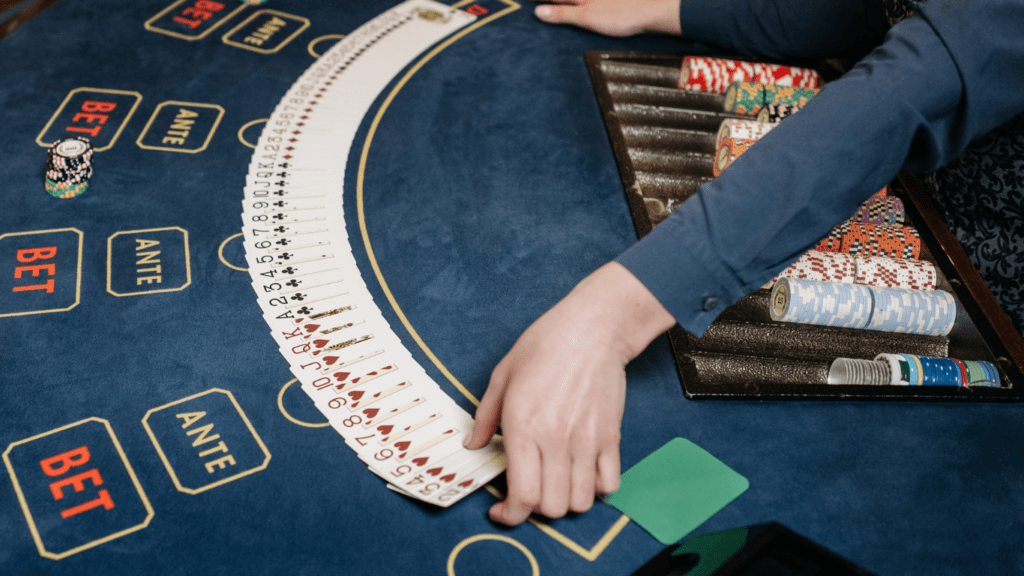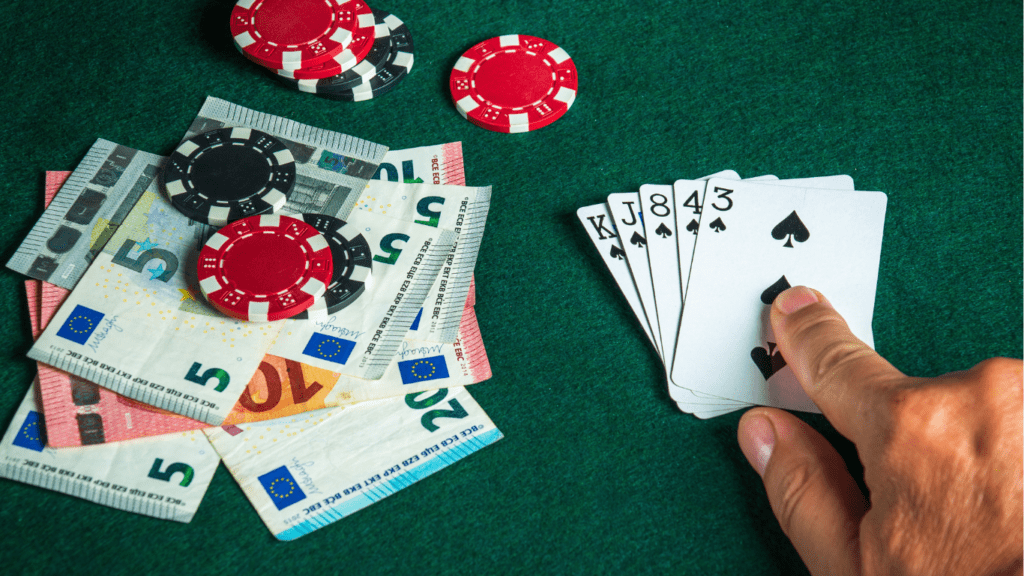Understanding Gambling Pitfalls
Recognizing gambling pitfalls helps me enjoy the activity without unnecessary risks. By understanding these hazards, I can gamble responsibly and avoid significant losses.
Definition and Nature of Gambling
Gambling involves betting on uncertain outcomes with the aim of winning money or items of value. It’s an activity that combines excitement and unpredictability, attracting individuals seeking entertainment and potential profit. By realizing that gambling hinges on chance rather than skill, it’s easier to manage expectations and prevent disappointment.
Popular Misconceptions About Gambling
Believing common misconceptions often leads to gambling mistakes. One belief is that prior losses enhance the likelihood of future wins, known as the “gambler’s fallacy.” Additionally, some think they can “beat the house” through skill alone, ignoring the advantage that casinos maintain. By understanding these myths, I’m less prone to making misguided decisions based on false assumptions.
Identifying Common Gambling Mistakes
Recognizing common gambling mistakes can help maintain control over your gambling experiences. Avoiding these errors significantly reduces the risk of financial loss and emotional distress.
Chasing Losses
Attempting to recover lost money by continuing to bet often results in larger losses. Chasing losses creates a cycle of desperation and further debt. I recommend setting strict limits for your gambling budget and sticking to them. This approach minimizes the temptation to recoup previous losses and keeps gambling enjoyable.
Betting Without a Plan
Going in without a strategy leads to impulsive decisions and increased risk of losing money. Embrace structured betting by establishing clear goals and boundaries before gambling. For instance, decide how much money and time you’re willing to invest and adhere to these limits as rigid guidelines.
Ignoring Odds and Probabilities
Disregarding the factual outcomes and chances of success often results in misguided bets. Understanding that gambling works in favor of the house and knowing the odds for each game enable informed decisions. I advise researching the probability of winning in various games and adopting strategies that align with realistic expectations.
Strategies for Avoiding Gambling Pitfalls

Recognizing and addressing gambling pitfalls help maintain a balanced experience. Here are methods to sidestep potential issues.
- Setting a Budget and Sticking to It
Establishing a budget prevents overspending. I allocate a specific amount to gamble and never exceed this limit. Regularly reviewing my budget keeps spending in check and prevents financial strain. Research shows that disciplined budgeting reduces the likelihood of impulsive decisions.
- Knowing When to Walk Away
Recognizing the right moment to stop is crucial. I assess my emotions and decide to walk away if I feel anxious or frustrated. Consistent reliance on cues ensures I avoid chasing losses. Studies indicate that quitting while ahead protects against regret and supports a healthy attitude towards gambling.
- Utilizing Betting Strategies Wisely
Informed strategy use enhances gambling experiences. I select strategies aligned with my goals and game understanding. Conducting research on probabilities and strategic planning adds an edge. Experts agree that combining knowledge with calculated risk-taking improves decision-making and game engagement.
Managing Your Gambling Habits
Developing awareness about one’s own gambling activities is crucial for maintaining control. By ensuring a balanced approach, I can enjoy gambling without falling into common pitfalls.
Recognizing Gambling Addiction
Spotting addiction early helps in maintaining a healthy gambling lifestyle. Signs of addiction include an inability to stop, gambling with higher stakes to achieve excitement, and neglecting responsibilities. If I notice these behaviors in myself, acknowledging them is the first step toward taking corrective action. According to the American Psychiatric Association, a persistent need to gamble or using gambling to escape stress are clear indicators of potential addiction.
Seeking Help and Support
Getting guidance ensures I maintain control over my gambling habits. Various resources, like:
- helplines
- support groups
offer assistance to those struggling. If addiction seems likely, reaching out to organizations such as Gamblers Anonymous or the National Council on Problem Gambling can provide necessary help. These platforms offer counseling sessions and peer support, making it easier to regain a balanced lifestyle while enjoying gambling responsibly.
Building a Healthy Gambling Mindset
Developing a healthy gambling mindset involves recognizing potential pitfalls and implementing responsible habits. This mindset focuses on maintaining control to ensure gambling remains a pleasant pastime.
Practicing Responsible Gambling
I commit to setting personal boundaries and adhering to them when gambling. This includes establishing a budget for how much I’m prepared to lose, preventing financial distress and reducing impulsive behavior. I develop self-awareness regarding my emotional state while gambling, ensuring that decisions aren’t driven by frustration or excitement. To prevent gambling from interfering with daily life, I allocate specific time limits for gambling activities.
Fostering Realistic Expectations
I cultivate realistic expectations by understanding that gambling is a game of chance, not a guaranteed profit. Acknowledging that house advantage exists helps me approach each session with a clear view of the odds. I remind myself that losses are part of the experience and don’t influence future outcomes. This mindset prevents disappointment and keeps gambling enjoyable. Researching the odds and rules of games I participate in ensures that my expectations align with the probabilities involved. By doing so, I remain grounded, minimizing the risk of compulsive behavior.



 Cher Peters – Senior Gambling Strategist & Responsible Gaming Advocate
Cher Peters plays a pivotal role as the Senior Gambling Strategist, combining her extensive knowledge of gaming tactics with a commitment to responsible gambling. She specializes in crafting comprehensive guides and strategic tips designed to help players make informed, enjoyable gaming choices. Cher’s content spans from beginner-friendly tutorials to advanced playing techniques, helping players maximize their potential for success while remaining mindful of responsible gaming principles. Her expertise is particularly valued by players seeking to balance excitement with safety, making her an essential voice on Casino Champs Fortune.
Cher Peters – Senior Gambling Strategist & Responsible Gaming Advocate
Cher Peters plays a pivotal role as the Senior Gambling Strategist, combining her extensive knowledge of gaming tactics with a commitment to responsible gambling. She specializes in crafting comprehensive guides and strategic tips designed to help players make informed, enjoyable gaming choices. Cher’s content spans from beginner-friendly tutorials to advanced playing techniques, helping players maximize their potential for success while remaining mindful of responsible gaming principles. Her expertise is particularly valued by players seeking to balance excitement with safety, making her an essential voice on Casino Champs Fortune.
